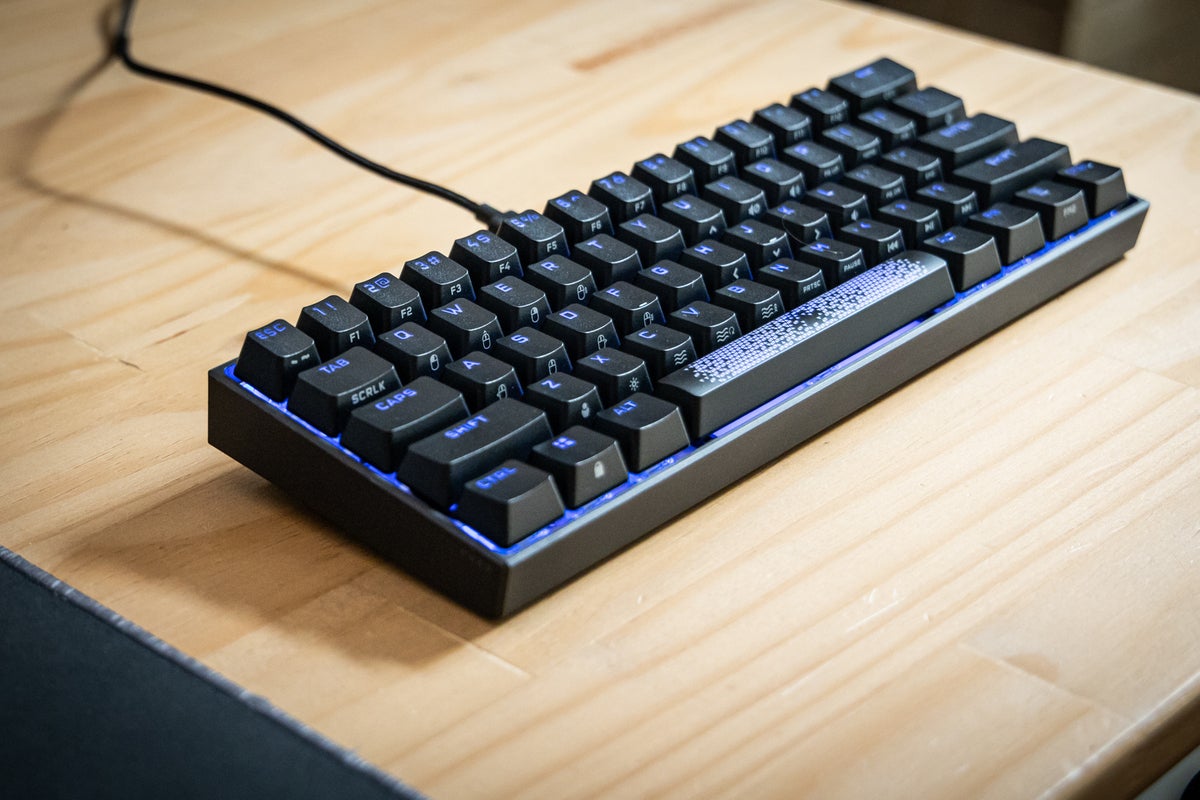[ad_1]
Mechanical gaming keyboards are the way to go if you’re looking for a superior typing or gaming experience, and size doesn’t always matter. Corsair’s K65 RGB Mini is a 60-percent mechanical keyboard—meaning it trims off some of the keys and focuses on offering a smaller footprint compared to a full-size keyboard with a dedicated function key row and number pad. It straddles the line between form and function, but it packs in quite a few features for its price tag ($110 on Amazon).
The K65 RGB Mini comes with more durable PBT double-shot keycaps that don’t wear down over time as much as traditional ABS plastic. Per-key RGB lighting is controllable inside Corsair’s iCue software, and an all-white tray underneath provides a radiant glow across the whole board. A whole host of on-board shortcuts are side-printed on keys and offer over 30 different controls to make up for the lack of dedicated keys—like the function and arrow keys.
Speaking of keys, the K65 uses Cherry MX linear switches (Red or Speed) that are custom-tailored for gaming. Corsair also boasts about its Axon processing technology, which delivers lightning-fast key press response, with up to 8,000Hz polling that can be configured inside iCue. For even more details about this fancy little keyboard, head on over Corsair’s site and check out the full spec sheet.
 Adam Patrick Murray/IDG
Adam Patrick Murray/IDGThe real question I have is: Why does someone want such small keyboard at the expense of extra functionality to begin with? After much debate I’ve come to understand where it’s a good fit.
Minimal desktop setups are very popular on social media platforms like Instagram right now, so there is definitely an aesthetic angle to this form factor. I personally wouldn’t prioritize it over those keys that I’ve come to love on a full-size keyboard.
One thing I could get behind is the camp of people who prefer smaller sizes in order to cut down on wrist strain, by bringing the mouse closer to the keyboard—something you can do thanks to the reduced size. As someone who uses a trackball for work for this reason, it hadn’t occurred to me that I could cut down on the distance my hand had to travel if I got rid of the keypad and the arrow keys.
But what if you still want or need a number pad, like I do? You can always get a dedicated one and place it wherever you want.
That is the last major reason I’ve heard for why people love this form factor—because they love the ability to customize their space to their own work style. This appeals to me as a PC builder, and I’m glad I took the time to check in with the mechanical keyboard community to further understand this unique trend.
[ad_2]
Source link